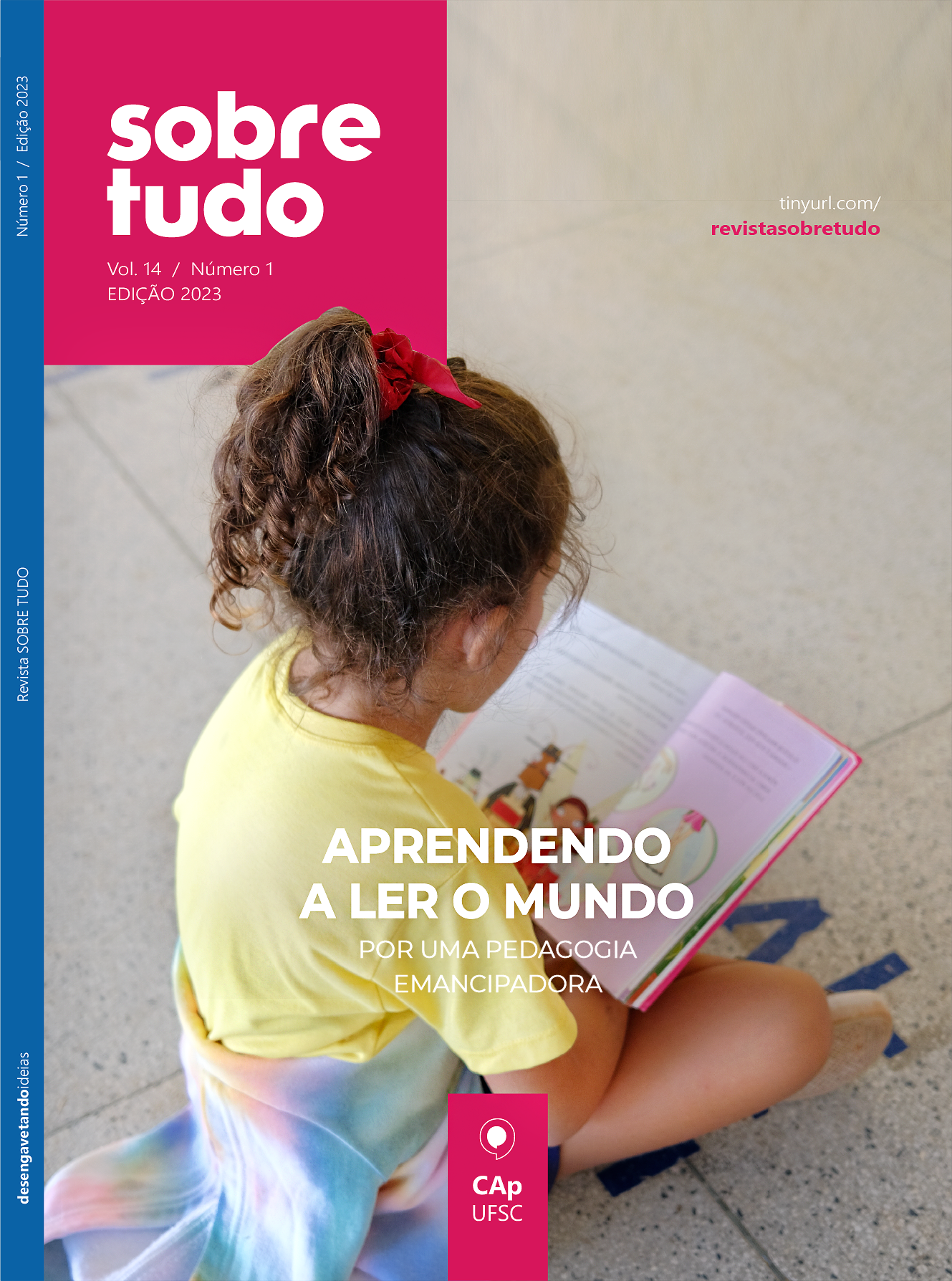GRAMÁTICAS: TIPOS, ANÁLISE E ENSINO DE PRONOMES PESSOAIS
Palavras-chave:
Ensino de Gramática, Variação Linguística, Pronomes Pessoais, Pedagogia da Variação LinguísticaResumo
Abordamos variadas formas de percepção do termo gramática (cf. ANTUNES 2007) e como os pronomes pessoais são trabalhados em livros de gramática comumente usados em escolas a fim de propormos uma abordagem de ensino sob perspectiva metodológica da pedagogia da variação linguística (cf. BORTONI-RICARDO 2005, 2011, 2014, 2021 e FARACO 2008, 2015, ZILLES & FARACO, 2017). O presente artigo está dividido em dois eixos: i) o uso do termo gramática em algumas concepções normativas e linguísticas (cf. FARACO 2008, 2022) e ii) a descrição dos pronomes pessoais em gramáticas escolares (cf. LOPES, OLIVEIRA e CARVALHO 2016). No primeiro eixo, apresentamos diferentes conceitos teóricos acerca do termo gramática e no segundo eixo, consideramos o termo como compêndio gramatical para fazer uma descrição dos pronomes pessoais em gramáticas escolares. Buscamos salientar a forma superficial com que os pronomes são abordados nesses compêndios sem uma base linguística. E procuramos trazer subsídios para estabelecer como professores da educação básica podem entender o termo gramática e sua aplicabilidade na língua dentro do cotidiano dos falantes, a partir do emprego dos pronomes. Nesse sentido, apresentamos a aplicação de uma oficina sobre variação estilística a partir de textos de gêneros diversificados. Nela os alunos identificam as formas variáveis de uso dos pronomes (caso reto e oblíquo) pelo viés da variação estilística de acordo com o nível mais ou menos formal da língua (SEVERO, 2014 e da HORA, 2014). Finalmente, remetemos aos resultados das discussões, realizadas na oficina e comentários sobre uma perspectiva de ensino pautada na variação.
Referências
ANTUNES, Irandé. Muito além da gramática: por um ensino de línguas sem pedras no caminho / Irandé Antunes. - São Paulo: Parábola Editorial, 2007.
ANTUNES, Irandé. Gramática contextualizada: limpando "o pó das ideias simples". São Paulo: Parábola Editorial, 2014.
BAGNO, Marcos. Língua, história e sociedade: breve retrospecto da norma-padrão brasileira. In: BAGNO, Marcos (org.). Lingüística da norma. São Paulo: Loyola, 2002.
BECHARA, Evanildo. / Evanildo Bechara. - 1. ed. - 5. reimpr. - Rio de Janeiro: Lucerna, 2006.
CEGALLA, Domingos Paschoal. Novíssima gramática da língua portuguesa / Domingos Paschoal Cegalla. - 48.ed. rev. - São Paulo: Companhia Editorial Nacional, 2008.
COSTA, J. E FIGUEIREDO SILVA, M. C. Studies on Agreement. John Benjamins Publishing Company, Amsterdam, 2006.
CUNHA, Celso. Nova gramática do português contemporâneo / Celso Cunha e Luís F. Lindley Cintra. - Rio de Janeiro: Nova Fronteira.
CYRANKA, Lucia F. Mendonça. A pedagogia da variação linguística é possível. In: FARACO, Carlos Alberto [et al]. Pedagogia da variação linguística: língua, diversidade e ensino. São Paulo, Parábola Editorial, 2015.
FARACO, Carlos Alberto. Norma culta brasileira: desatando alguns nós. São Paulo, Parábola Editorial, 2008.
FARACO, C. A.. Norma-padrão e ensino de português no Brasil. Palavras - revista em linha, v. 4, p. 45-56, 2021
FARACO, C. A. & ZILLES, A. M. Para conhecer norma linguística. São Paulo, Contexto, 2017.
HORA, Demerval da. Estilo: uma perspectiva variacionista. In: variação estilística – reflexões teórico-metodológicas e proposta de análise. Edair Maria Görski, Izete Lehmkuhl Coelho e Christiane Maria Nunes de Souza (orgs.). Coleção Linguística. V3. Florianópolis: Insular. 2014.
KENEDY, Eduardo. Curso básico de linguística gerativa. São Paulo. Editora Contexto, 2013.
LOPES, Célia Regina dos Santos; OLIVEIRA, Thiago Laurentino de; CARVALHO, Bruna Brasil Albuquerque de. A expressão da 2ª pessoa do singular: variação e percepção numa abordagem experimental. In: TODAS AS LETRAS, São Paulo, v. 18, n. 2, p. 117-132, maio/ago. 2016 http://dx.doi.org/10.15529/1980-6914/letras.v18n2p117-132.
MORATO, G. F. de F. Monitoramento linguístico: uma proposta de ensino baseada na sociolinguística educacional a partir dos pronomes pessoais. 2019. 220 f. Dissertação (Mestrado Profissional em Letras) - Universidade Federal de Uberlândia, Uberlândia, 2019. Disponível em: http://dx.doi.org/10.14393/ufu.di.2019.677.
NICOLA, José de. Gramática Contemporânea da Língua Portuguesa / José de Nicola, Ulisses Infante - São Paulo: Scipione, 1997.
SANTANA, J. M. C. P. Que norma ensinar na escola? O ensino-aprendizagem do preenchimento do objeto direto como fenômeno variável. In: VIEIRA, Silvia Rodrigues (org.) Gramática, variação e ensino: diagnose & propostas pedagógicas. Rio de Janeiro: Letras UFRJ, 2017.
VIEIRA, F. E. ; FARACO, C. A. . Escrever na Universidade: gramática da norma de referência. 1. ed. São Paulo: Parábola Editorial, 2022. v. 1. 264p
SARMENTO, Leila Lauar. Gramática em Textos. São Paulo: Moderna, 2005.
SEVERO, Cristine Gorski. Estilo, variação linguística e discurso. In: variação estilística – reflexões teórico-metodológicas e proposta de análise. Edair Maria Görski, Izete Lehmkuhl Coelho e Christiane Maria Nunes de Souza (orgs.). Coleção Linguística. V3. Florianópolis: Insular. 2014.


